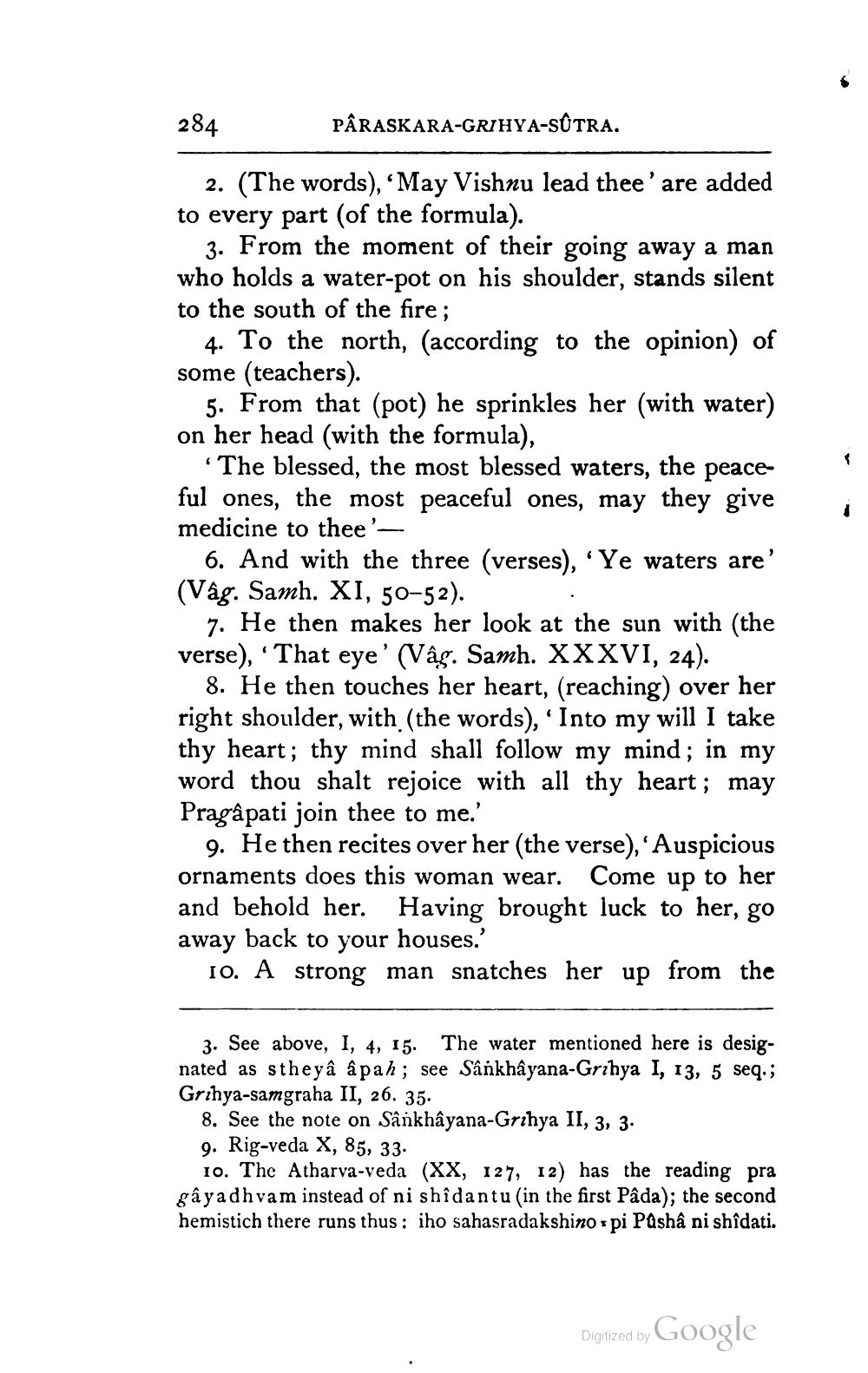________________
284
PÂRASKARA-GRIHYA-SÓTRA.
2. (The words), “May Vishnu lead thee' are added to every part (of the formula).
3. From the moment of their going away a man who holds a water-pot on his shoulder, stands silent to the south of the fire;
4. To the north, (according to the opinion) of some (teachers).
5. From that (pot) he sprinkles her (with water) on her head (with the formula),
The blessed, the most blessed waters, the peaceful ones, the most peaceful ones, may they give medicine to thee'
6. And with the three (verses), 'Ye waters are' (Vag. Samh. XI, 50-52).
7. He then makes her look at the sun with (the verse), “That eye' (Vâg. Samh. XXXVI, 24).
8. He then touches her heart, (reaching) over her right shoulder, with (the words), ‘Into my will I take thy heart; thy mind shall follow my mind; in my word thou shalt rejoice with all thy heart; may Pragâpati join thee to me.
9. He then recites over her (the verse),'Auspicious ornaments does this woman wear. Come up to her and behold her. Having brought luck to her, go away back to your houses.'
10. A strong man snatches her up from the
3. See above, I, 4, 15. The water mentioned here is designated as stheyâ âpah; see Sânkhâyana-Grihya I, 13, 5 seq.; Grihya-samgraha II, 26. 35.
8. See the note on Sânkhâyana-Grihya II, 3, 3. 9. Rig-veda X, 85, 33.
10. The Atharva-veda (XX, 127, 12) has the reading pra gâyadh vam instead of ni shidantu (in the first Pada); the second hemistich there runs thus : iho sahasradakshino spi Pashâ ni shidati.
Digitized by Google




